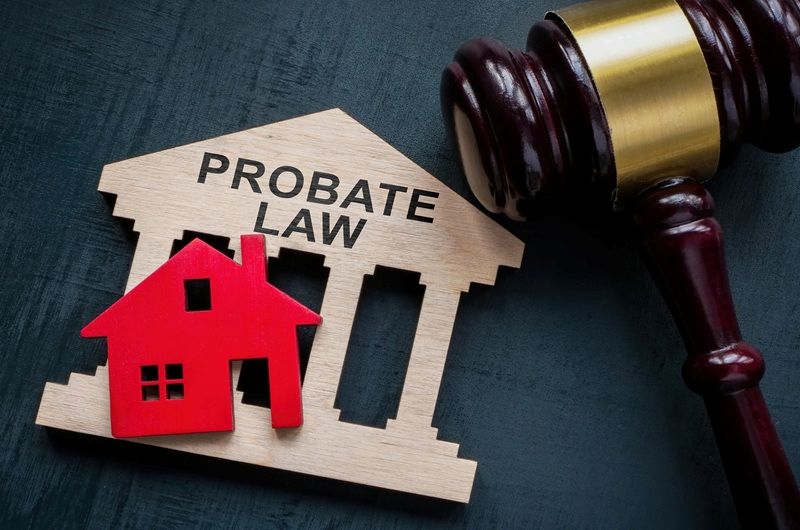Five Common Myths About Trust Litigation In California
Five Common Myths About Trust Litigation In California
Trust litigation in California can feel like an enigma. Many people are uncertain about the process, leading to misunderstandings affecting their decisions. Myths about trust disputes can make resolving these issues seem more complicated than it needs to be.
When dealing with a trust dispute, you might be worried about time, money, or family conflict. This article tackles five widespread myths about trust litigation, offering clarity and insight into the realities of the process.
Myth: Trust Litigation Is Always Lengthy And Expensive
Picture this: A family dispute over a trust spirals into endless court battles, draining time and money. While this scenario happens, it’s far from inevitable. The time and cost of trust litigation depend on the complexity of the case, cooperation among parties, and the effectiveness of your legal team.
In California, many trust disputes are settled before reaching trial. Mediation and negotiation often help parties avoid prolonged litigation. For instance, a beneficiary challenging a trustee’s actions may reach an agreement through early discussions. Settling disputes out of court can save everyone involved significant time and resources.
Of course, some cases take longer due to high stakes or uncooperative parties. However, clear communication and a focused legal approach can often shorten timelines and reduce expenses.
While no one can guarantee a quick resolution, many trust disputes resolve faster than expected. The key is a proactive approach paired with sound legal guidance.
Myth: Only Family Members Can Contest A Trust
Many assume only family members can challenge a trust, but this isn’t true. In California, anyone with a legal interest in the trust, including creditors, named beneficiaries, and sometimes even business partners, may contest it.
This myth often arises because trust disputes frequently involve family members. However, California law doesn’t limit challenges to relatives alone. Understanding who qualifies to contest a trust is vital for anyone affected by its terms.
Knowing your standing to contest a trust is the first step toward resolving your concerns. Don’t let assumptions stop you from exploring your rights.
Myth: Trusts Are Ironclad & Cannot Be Challenged
Trusts may seem unshakable, but they are not immune to scrutiny. While they offer asset protection, California law allows challenges under certain conditions. For example, if someone creates a trust under undue influence, the trust may not hold up in court.
Similarly, if the person creating a trust lacks mental capacity or fraud occurs during its drafting. Imagine an elderly parent under pressure to sign a trust that excludes all their children. If the children can prove undue influence, the trust might be invalidated. Cases like this highlight that trusts aren’t untouchable.
Challenging a trust requires evidence and a clear legal strategy. While it isn’t easy, it’s possible to dispute a trust when there’s a legitimate cause. This myth discourages people from pursuing justice but is far from reality. Trusts can face challenges, but the process involves balancing the law and the intentions of those involved.
Myth: Trustees Have Absolute Power Over Trust Assets
The idea that trustees have unchecked authority is misleading. Trustees are bound by fiduciary duties that protect beneficiaries. It means they must act in good faith and prioritize the trust’s terms and beneficiaries’ interests.
For instance, trustees cannot use trust funds for personal expenses. If they do, beneficiaries can hold them accountable through legal action. Trustees must also provide regular accountings to ensure transparency in managing trust assets.
Think of trustees as stewards rather than rulers. They must adhere to the trust’s instructions and California’s laws. Beneficiaries can seek legal remedies when trustees fail in their duties. This myth often arises because trustees wield significant responsibility.
However, their actions are far from unchecked. Legal avenues are available to protect your rights if you’re dealing with a trustee misusing their role. Trustees don’t operate in a vacuum. Their responsibilities come with oversight and consequences for misuse.
Myth: Trust Litigation Always Leads To Family Discord
Many fear that contesting a trust will tear families apart. While emotions often run high, disputes don’t always end in lasting rifts. Mediation and other resolution methods help families resolve issues without permanently damaging relationships.
Take the example of siblings disputing their late parent’s trust distribution. With the help of skilled negotiators, they may find common ground and preserve their bond. Alternative dispute resolution can provide a neutral platform to air grievances and settle disputes amicably.
Of course, some cases do lead to conflict. However, this outcome isn’t a foregone conclusion. Open communication and a focus on resolution can help families avoid unnecessary discord. Relationships often survive trust disputes when handled with care.
Don’t let this myth prevent you from protecting your rights or addressing unfair circumstances because disputes don’t always spell disaster. Families can resolve trust issues and maintain their bonds with the right approach. Next, examine the common reasons for trust litigation in California.
Common Reasons For Trust Litigation In California
Trust litigation arises from a variety of situations. Disputes often stem from concerns about trustee misconduct, ambiguous trust terms, or allegations of undue influence. Exploring these common triggers provides insight into why litigation becomes necessary and how it addresses potential injustices.
Trustee Misconduct & Financial Mismanagement
Trustees have a fiduciary duty to act in the best interest of the beneficiaries. However, conflicts arise when trustees fail to fulfill these obligations. Examples include mismanaging trust assets, failing to provide accurate financial accountings, or engaging in self-dealing.
Beneficiaries often turn to litigation to address such breaches, recover lost funds, or restore fairness in trust administration.
Ambiguous Trust Terms
Disagreements frequently emerge when the language in a trust document is unclear or open to multiple interpretations. Ambiguity in the terms can lead to disputes among beneficiaries or between beneficiaries and trustees. These conflicts often require court intervention to clarify the grantor’s intent and ensure proper asset distribution.
Allegations Of Fraud Or Undue Influence
Trust disputes also arise from concerns about fraud or undue influence. For instance, a vulnerable individual may be coerced or manipulated into signing a trust that disproportionately benefits one party. Legal action can uncover such misconduct and protect rightful beneficiaries from unfair outcomes.
Identifying and addressing these issues emphasizes the importance of fair and ethical trust practices and proactively addresses potential disputes. Acting swiftly and strategically can significantly protect one’s interests through litigation.
Steps To Take If You’re Considering Trust Litigation
Trust litigation can be challenging, but a structured approach simplifies the process and ensures critical concerns receive attention. Taking decisive action helps build a solid foundation for resolving disputes effectively.
Collect Relevant Documents
The first step in trust litigation is gathering essential documents. Key records include the trust document, financial statements, and any correspondence related to the dispute. Detailed evidence strengthens the case and provides a clear understanding of the issues involved.
Define Clear Objectives
Understanding your goals is critical before moving forward. Objectives may include removing a trustee, contesting the trust’s validity, or recovering financial losses. Defining these provides direction and ensures all efforts align with the desired outcome.
Seek Legal Guidance
Consulting a trust litigation attorney is vital for navigating the complexities of legal disputes. An experienced attorney evaluates the case’s merits, outlines available legal options, and develops a strategy tailored to the situation. They also ensure that the process remains focused and efficient.
Gathering evidence, setting clear goals, and seeking legal support can help individuals approach trust litigation confidently. These steps establish the groundwork for a fair and effective resolution to trust disputes. They also set the stage for exploring how the law firm San Diego Probate Attorneys effectively assists with trust litigation.
San Diego Probate Attorneys Provides Support
At San Diego Probate Attorneys, we provide dedicated legal support for trust disputes, assisting trustees or beneficiaries. Our team addresses issues such as trustee misconduct, contested trusts, and asset recovery, creating solutions tailored to client’s unique needs.
We focus on clear communication and client education to ensure you understand your options and feel supported. We also resolve disputes efficiently through mediation and negotiation, minimizing stress, saving time, and protecting family relationships.
Our team is fully prepared to represent your interests in court if litigation becomes necessary. At San Diego Probate Attorneys, we guide clients through trust disputes, ensuring their rights and goals remain our top priority.
Trust litigation in California is sometimes misunderstood. Myths about its cost, length, and impact can discourage people from addressing legitimate concerns. In reality, trust disputes are often resolvable through strategic legal action.
Understanding common causes, such as trustee misconduct or ambiguous terms, taking proactive steps, gathering evidence, and defining goals can lead to successful outcomes. San Diego Probate Attorneys offers dedicated support, focusing on efficient resolutions, clear communication, and client-focused strategies. We help you navigate trust disputes with confidence.









